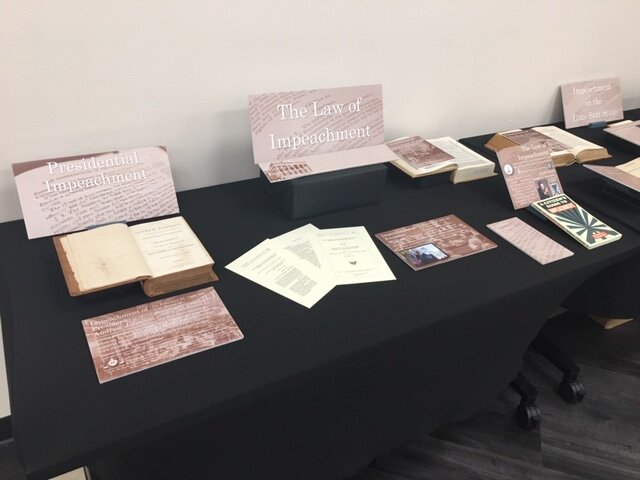On Monday, December 16, we welcomed attorney and author Barbara A. Radnofsky for The Law of Impeachment, a special continuing legal education event from Office of Vince Ryan, Harris County Attorney, and the Law Library. Radnofsky’s book, A Citizen’s Guide to Impeachment, is a well-researched, non-partisan guide to this timely topic and provided a touchstone for a lively discussion with lawyers and members of the public in attendance.
A Citizen’s Guide for the Citizens
Following the program, Radnofsky met with participants for a book signing in the lobby of the Harris County Attorney Conference Center. She presented a signed copy to Law Library Deputy Director Joe Lawson to be added to the collection and made available to everyone.
“We are honored to add this work to our collection and to make Barbara’s expertise and research available to everyone at the Law Library,” Lawson said.
The Law of Impeachment - the exhibit
To add to the learning opportunity, the Law Library assembled an exhibit of rare books, including original printings of the proceedings of impeachment for U.S. President Andrew Johnson and Texas Governor James “Pa” Ferguson. The exhibit remains on display at the Law Library and online as a digital exhibit.











